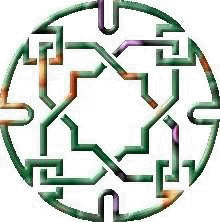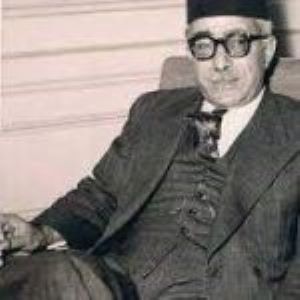



Mohammad Hussein Heikal, (1888 - 1956), journalist, novelist, and a well know political figure, and one of the leaders of the liberal and enlightenment thought in Egypt in the first half of the twentieth century.
Mohammad Hussein Heikal finished his studies in law in Sorbonne University, Paris, afterwards he returned to Egypt where he worked as a lawyer for ten years, during which he was writing in newspapers. During this period he was in contact with Ahmad lutfi Alssayed, the well known liberal figure and followed his thought, in addition he was affected by the thought of Alsheikh Muhammad Abuh, and Kassem Amin. He was appointed as the chief editor of the weekly newspaper 'the weekly politics' which was issued by the 'Umma' (the nation) party, on 1926. He was chosen as a minister of education several times, on 1938, 1940 and 1945, in addition to the duty of the minister of the social affairs on 1945.
He filled the position of deputy president of the 'liberal constitutionalist' party on 1941 and became its president, 1943 till 1952 in which the new Egyptian revolution prohibited party formation. In addition he became president of the senate council from 1945 till 1950. He also headed the Egyptian delegation in formation of the convention of the Arab league as well as its delegation to the UN several times.
Mohammad Hussein Heikal was a strong advocate of liberalism in its modernist sense. However he is considered among thinkers who believe in the possibility of the formation of an Arab/Egyptian form of liberalism. This orientation is termed today as a form of a combinatory view, a view which tries to combine authenticity (i.e, Arabic heritage) with contemporary thought (i.e, modernism). This view is revealed in his well know novel 'Zaynab', which is usually referred to as the first Egyptian and Arabic novel. The novel portrays clearly the dimension of authenticity in his thought, in its main character Zaynab (a girl), but at the same time introduces the element of advancement of the Egyptian woman in the modernist sense. The same line of thought is also revealed in his famous book 'the life of Muhammad', in which he narrates and analyses the life of the prophet Muhammad in a rationalist manner, which was a totally new method of narration of such a religious character.
'Zaynab', a novel, 1914.
The life of Egyptian and western personalities, 1929.
The life of Muhammad, 1933.
In the home of the revelation, 1939.
The farouk (the decisive) Omar, 1945.
Notes on the Egyptian politics, 1951/1953.
The truthful Abubakr.
Ten days in Sudan.
The Islamic empire and the holy places, 1964.